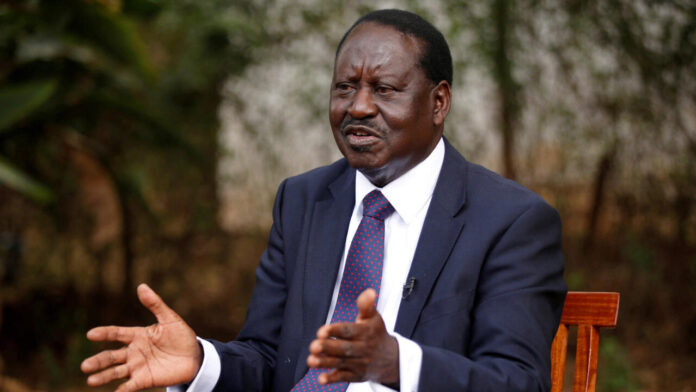Kenyan President William Ruto has declared seven days of national mourning following the death of opposition leader Raila Odinga, one of the country’s most influential and enduring political figures.
Odinga, 80, died on Wednesday at a health retreat in India. Ruto described him as “Kenya’s foremost statesman and one of Africa’s greatest sons… a giant of democracy, a fearless freedom fighter, and a tireless warrior of good governance.”
The president said he would suspend all public engagements in the coming days “as a mark of respect.” A state funeral will be held in Odinga’s honor.
Across Nairobi, hundreds of supporters gathered at Odinga’s residence in the upscale suburb of Karen, mourning the man they called “Baba” — father.
“A king,” “a hero,” “Nelson Mandela,” “Jesus Christ” — no superlative seemed too much for the crowds that poured into his home just hours after his death.
Many wept openly. One man entered on his knees as tearful women screamed “Baba” again and again.
“We need him. He left a void that no one can fill. Raila brought us democracy. He suffered a lot to serve us. He was our Jesus Christ.” said Johnson Omongi, 25, who said he had walked three hours to reach the home.
Odinga’s legacy is inseparable from Kenya’s long fight for democracy. He spent eight years in prison under former president Daniel arap Moi’s regime, from 1982 to 1991, for his political activism. He later championed the 2010 constitution, which ushered in major democratic reforms.
“He’s my hero. This guy has fought for Kenya for as long as I can remember,” said Ismael Ondego, 42, clutching two placards that read “One Love.”
Though Odinga ran unsuccessfully for president five times: in 1997, 2007, 2013, 2017, and 2022. He became a symbol of opposition resilience and reform with his willingness to reconcile with rivals, including Ruto, drawing both admiration and criticism.
“He was courageous enough to shake the hands of the presidents who had stolen his victories,” Ondego said. “I wanted to see him lead us beyond Ruto. His death has robbed us of our future.”
Outside his residence, grief mingled with chaos. Many of the mourners, visibly poor, stood in stark contrast to the grandeur of the estate. Some tried to force their way in, seeking shade under the compound’s trees and chanting, “This house is not yours,” at those blocking entry.
Others bounced on a trampoline or plucked avocados from trees. “They are enjoying the fruits of our leader,” said one of Odinga’s aides with a weary smile.
Seated on a plastic chair, she looked out over the crowd and added quietly,
“He is my father, my hero, my boss. I lived for him. He called us his children. A hero has fallen.”

